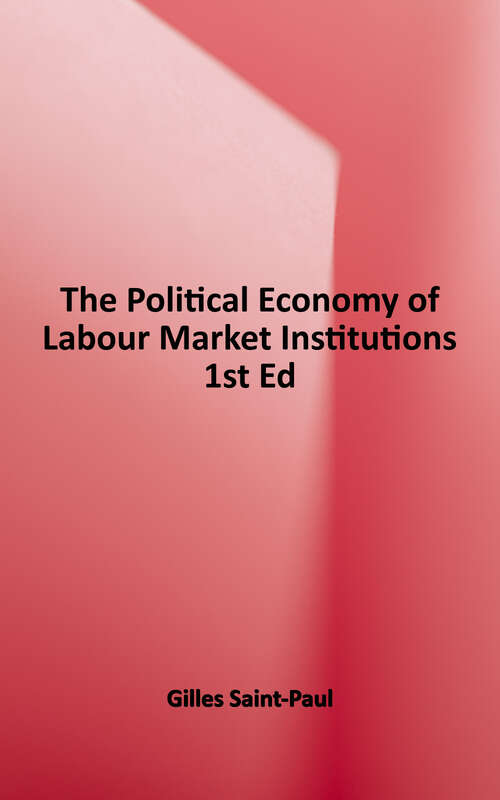The Political Economy of Labour Market Institutions
By:
Sign Up Now!
Already a Member? Log In
You must be logged into Bookshare to access this title.
Learn about membership options,
or view our freely available titles.
- Synopsis
- According to most orthodox economists, labour market rigidities are the key culprit for such high unemployment as has been observed in Europe during the past three decades. But governments that have attempted to follow the standard prescription of removing rigidities have often faced harsh political opposition. This book looks at why labour market institutions such as employment protection, unemployment benefits, and relative wage rigidities exist, what role they play in society, why they seem so persistent, where the pressure to reform them comes from, and whether reform can be politically viable or not. The book ascribes a central role to the existence of underlying microeconomic frictions and to redistributive pressures between rich and poor, and shows how these ingredients may give rise to labour market rents, which in turn explain why a coherent set of rigidities arise as the outcome of the political process. It is also shown that, at the same time, such rents create resistance to reform, and contribute to locking society into a high-unemployment, rigid equilibrium. Finally, the basic principles exposed in the book are used to discuss various strategies for a successful labour marketer form.
- Copyright:
- 2000
Book Details
- Book Quality:
- Excellent
- Book Size:
- 288 Pages
- ISBN-13:
- 9780198293323
- Publisher:
- Oxford University Press
- Date of Addition:
- 10/02/23
- Copyrighted By:
- Gilles Saint-Paul
- Adult content:
- No
- Language:
- English
- Has Image Descriptions:
- No
- Categories:
- Nonfiction, Business and Finance, Politics and Government, Sociology
- Submitted By:
- Worth Trust
- Proofread By:
- Worth Trust
- Usage Restrictions:
- This is a copyrighted book.
